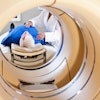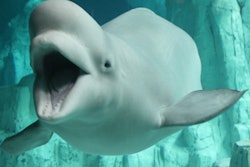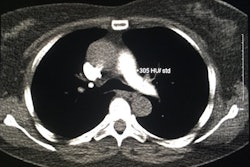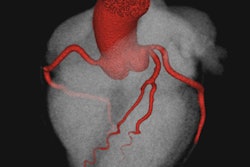Dear AuntMinnieEurope Member,
When it comes to imaging patients with chest pain, coronary CT angiography (CCTA) finally seems to be getting the recognition it deserves. That's the key message from the U.K.'s new guidance published last week.
The real challenge lies ahead, however. How can radiology cope with the potential difficulties of implementing the policy? This appears to be a pivotal moment for CCTA, but cardiac imaging experts are concerned that the infrastructure does not exist to support the widespread use of the technique. Go to our Cardiac Imaging Community, or click here.
Next up we have an amazing tale from Spain, where interventional radiologists have helped veterinarians successfully perform the artificial insemination of a beluga whale. Their approach might provide a significant boost for endangered marine mammals. Get the full story here.
New musculoskeletal research into rice bodies received an award at last week's RSNA 2016 in Chicago. The authors highlighted important factors to keep aware of when it comes to rice bodies, as well as the best technique to use. Find out more in the MRI Community, or click here.
Meanwhile, Irish researchers have conducted a single-center study to compare breast radiation dose in pregnant and nonpregnant women undergoing a CT pulmonary angiography study using either a reduced 80-kV contrast-monitoring protocol or the conventional 120-kV protocol. The team found decreasing the default peak kV resulted in a significant reduction in radiation dose to the breast from monitoring scans. Click here for the details.
Artificial intelligence is a hot topic right now. Dr. Paul Chang is a well-known and respected source on both sides of the Atlantic, and you can view a thought-provoking video interview with him here.
Last but not least, don't forget to catch all the news from RSNA 2016 on our sister site AuntMinnie.com. For the full coverage, visit the RADCast @ RSNA.



















